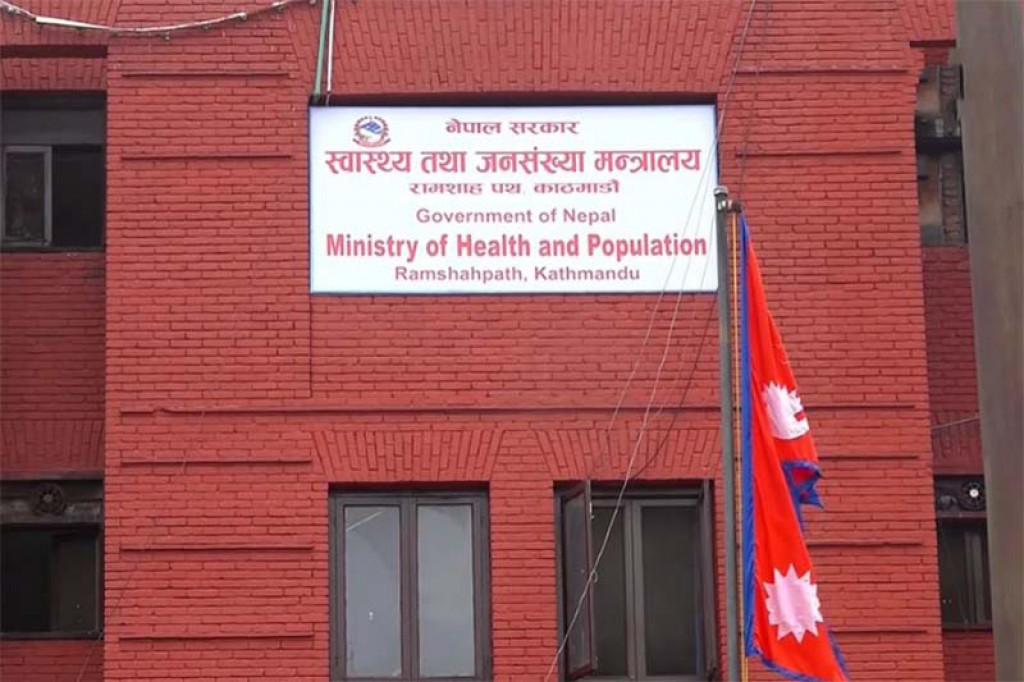

The Ministry of Health and Population has signed an agreement with the World Health Organization (WHO) today to join the Global Platform for Access to Childhood Cancer Medicines (GPACCM). The GPACCM is an initiative by St Jude Global and WHO to increase access to lifesaving childhood cancer medicines in low and middle-income countries.
As a member of the platform, Nepal will receive 35 types of childhood cancer medicines free of cost for four years. The WHO will provide technical support to strengthen the supply chain system and healthcare facilities to ensure the effective distribution of the medicines.
It may be noted that UNICEF is the procurement partner of the GPACCM Platform and will be involved in the procurement of the medicines and delivering them to the port of entry.
The first batch of medicines is expected to arrive in the country by the third quarter of 2024 and will be used for the treatment of childhood cancer in the four participating health institutions namely, Bhaktapur Cancer Hospital, BP Koirala Cancer Hospital, Kanti Children’s Hospital, and Patan Hospital. It will be expanded to the shared care center hospitals as need arise in the future, according to a statement released by WHO Nepal office here today.
Speaking at the signing ceremony, Secretary at the Ministry of Health and Population Dr Roshan Pokhrel said with the signing of this agreement Nepal has formally joined the GPACCM platform, which will make a great difference in improving the treatment of children suffering from cancer in the country.
Likewise, WHO Representative to Nepal Rajesh Sambhajirao Pandav said this innovative platform will help enhance access to cancer care by addressing medicine availability issues and ensure that children who need essential cancer medications can access them, while also helping reduce the financial burden placed upon parents and families of children with cancer.
Each year, an estimated 900 children are reportedly diagnosed with cancer in Nepal. However, only about one-third of childhood cancer cases receive treatment, primarily due to constraints such as limited access to services and resource scarcity, resulting in increased deaths, according to WHO.
Nepal is one of the six countries worldwide and the only one in the WHO South-East Asia Region selected by the GPACCM platform to participate in this novel initiative.
Nepal stepped into the global spotlight in 2020 as a focus country for the Global Initiative for Childhood Cancer (GICC) which aims to improve outcomes for children with cancer around the world and reach at least 60 per cent survival rate for children with cancer by 2030. At present, the survival rate of children with cancer is only 20-30 per cent in low and middle-income countries compared to over 80 per cent in high-income countries.
The Global Platform for Access to Childhood Cancer Medicines, the first of its kind, was launched in 2021 as part of the Global Initiative for Childhood Cancer. Developed jointly by St Judes Global and WHO, the platform aims to provide an uninterrupted supply of quality-assure cancer medicines to approximately 120 000 children in low and middle-income countries between 2022 and 2024, with the expectation to scale up in future years.
This platform will provide end-to-end support-consolidating global demand to shape the market, assisting countries with the selection of medicines, development of treatment standards and building information systems to track that effective care is being provided and to drive innovation.